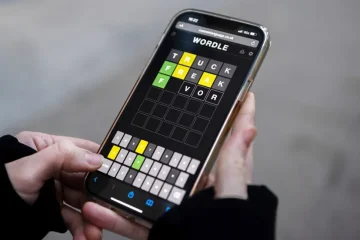1. Wooden Puzzles
Wooden puzzles are timeless classics that provide endless opportunities for learning and exploration. Available in a variety of shapes, sizes, and complexity levels, these puzzles engage children’s minds as they work to match shapes and complete pictures. The tactile sensation of wooden pieces and the satisfaction of fitting them together help to develop fine motor skills and hand-eye coordination. Additionally, solving puzzles fosters cognitive development and critical thinking skills as children learn to problem-solve and think logically.
2. Pretend Play Sets
Pretend play sets are essential tools for nurturing imagination and creativity in young children. Whether it’s a play kitchen, doctor’s kit, or dollhouse, these sets encourage children to engage in imaginative role-playing activities. Through pretend play, children develop language skills, social skills, and emotional intelligence as they learn to communicate, cooperate, and express themselves. By providing realistic props and accessories, pretend play sets spark storytelling and encourage children to explore various roles and scenarios, fostering empathy and understanding of the world around them.
3. Sensory Bins
Sensory bins offer a multisensory experience that captivates children’s attention and stimulates their senses. Filled with materials like rice, beans, water beads, or sand, along with scoops, containers, and other tools for exploration, sensory bins provide endless opportunities for hands-on learning and sensory exploration. As children dig, pour, scoop, and manipulate the materials, they engage their senses of touch, sight, and sound, promoting sensory awareness and fine motor development. Sensory play also encourages scientific inquiry and experimentation as children observe, compare, and describe the properties of different materials.
4. Building Blocks
Building blocks are versatile toys that inspire creativity, imagination, and spatial reasoning skills in young children. Whether they’re stacking towers, building bridges, or constructing elaborate structures, children are actively engaged in hands-on learning as they explore the possibilities of block play. Building with blocks helps children develop spatial awareness, problem-solving skills, and fine motor control as they manipulate and arrange the blocks to achieve their desired designs. Additionally, block play encourages collaboration and cooperation as children work together to build and problem-solve, fostering social skills and teamwork.
5. Art Supplies
Art supplies unleash children’s creativity and allow them to express themselves freely through artistic expression. Whether it’s drawing, painting, sculpting, or crafting, art activities provide a canvas for self-expression and exploration. By offering a variety of art supplies like crayons, markers, paint, and clay, parents and caregivers can encourage children to experiment with different mediums and techniques, fostering creativity and confidence. Engaging in art activities also promotes fine motor skills and hand-eye coordination as children manipulate art tools and materials.
In conclusion, Montessori toys for 2-Year-Olds provide valuable opportunities for learning, growth, and exploration during this critical stage of development. By selecting toys that align with Montessori principles, parents and caregivers can create a supportive environment that encourages independence, creativity, and a love for learning in their children. Through hands-on, child-directed play with Montessori-inspired toys, toddlers can develop essential skills and abilities that will serve them well as they continue to grow and learn.



